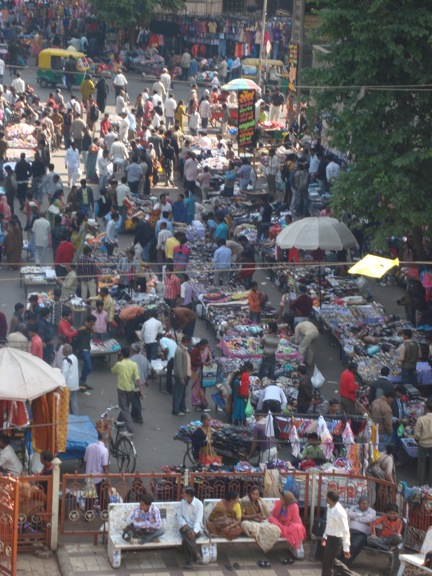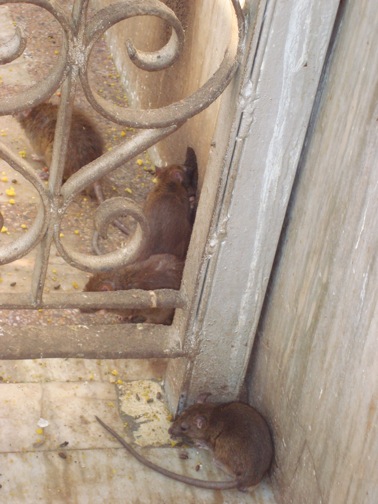
When the chaos of life and of billions of people surrounds you, it's hard to see how G-d can pay attention to it all... yet, somehow He does, down to the tiniest detail.
Travel is chaos. No matter where you go, no matter what you’re doing, serious travel always involves serious chaos.
I’m not talking about a vacation. I’m not talking about flying to Club Med and having everything catered for you in your own private bubble. I’m talking about travel. Travel is when you do it all yourself. Travel is when you see how the locals live. When you figure out what buses and trains and metros they ride. When you discover the real culture and the real life.
Travel is chaos. There is always something happening, always something to notice, always something going on. Sometimes it’s positively overwhelming. Travel in India leaves you in shock, you don’t know which way to turn or what to look at; there is simply no way to take it all in. Travel in South and Central America leaves you gaping at slums on the edges of modern cities, at the residents of those cities who dig in the trash cans for recyclables. Travel in Switzerland is a shock, too, precisely because it is so clean and modern and fashionable. Any sort of real travel involves real chaos, whether it is of the physical sort that surrounds you, or whether it is the kind that goes on in your mind.
Sometimes it’s pretty overwhelming and it’s easy to get lost in it. How can your mind process everything that it’s seeing, when there are buses and cars and motorcycles and donkey carts on the same street? It is so easy to forget that Hashem has a hand in everything – everything - right down to the tiniest detail. But how can that even be? When I see a rat in the restroom at an Indian bus stop scurry past me as I enter, how can I really believe that Hashem has a hand in that rat’s life? Why would G-d even care about that rat? How do we know that G-d cares about that rat?
In this week’s parsha we learn about a very famous object: the staff of Moshe (Moses). With this staff, he can turn rivers into blood and the staff into a snake and back again. It may not impress Pharaoh much, but it sure would impress me! On this staff were some kabbalistic engravings. There were the names of the three forefathers, the four mothers, and the twelve tribes. G-d also engraved something else on this staff, in kabbalistic writing: the ten plagues.
Now, it makes plenty of sense to have the family lineage engraved on the staff. After all, it is important to the Jews (especially at this stage, when they are mired so deeply in spiritual impurity!) to remember where they came from and who their family is. But why the ten plagues?
The plagues may have been a miracle in our eyes, sure, but let’s face it – they are really mundane things. We’re talking about people being covered with boils, frogs jumping everywhere, swarms of locusts, infestations of lice. These are all really lowly things, all things very much of this world. But not only did G-d concern Himself with them, He thought them important enough that He Himself engraved them kabbalistically on Moshe’s staff. G-d was not above dealing directly with issues involving the movements of lice.
Some people today believe that G-d cares about the big things, but that the little ones are left to us. Others believe that G-d has given us certain things (like plants and animals) that we’re in control of, that He has relinquished control over them and ceded it to us. Neither of these things is true. G-d may have entrusted certain things to our care, but at the end of the day, He is still in charge. And He cares about and is involved with every little thing going on in the world.
The Ba’al Shem Tov teaches that everything we see in our lives is there to teach us a lesson. There is nothing that is too small or unimportant that it does not have a lesson to teach us. G-d has a hand in all of this. Every little action is important. Whether it’s a flea sneezing or a butterfly flapping its wings, it’s all part of the bigger picture. The sooner we recognize this, the more that we will learn and grow and appreciate.
Shabbat Shalom!
Read More





